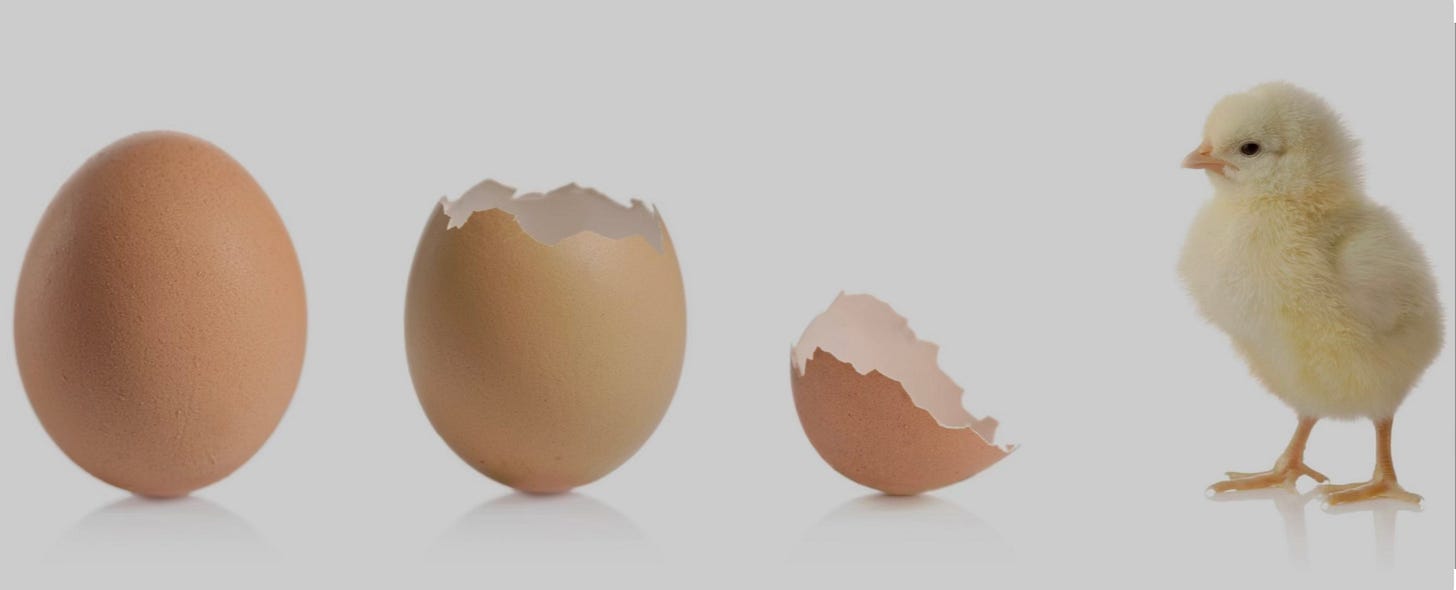Birds, Breakfast, & the Bodies We Don’t See
What a mother bird, a morning omelet, and the origins of capitalism have in common.
Yesterday evening, a day before my friend Fran was readying to host her feminist (listener sponsored public) radio show, she was feeling a little anxious. She took a walk through Tompkins Square Park and called me, as she had in the past when she needed a breath of air, a laugh, or a loving ear.
We talked, as we often do, about the world and its wounds. But we also veered toward something tender: the birds outside her apartment windows. Fran had been putting out crumbs, trying to feed one little bird family - a mother and her chicks. She told me how upset the mother bird seemed when other birds swooped in, fighting over food that wasn’t meant for them.
Fran was trying to help this mother. To honor this life. And something in her voice stopped me.
I gently asked: “Fran… do you eat eggs?”
Not to lay guilt - just to plant a seed. Because the tenderness she showed that bird family is the same tenderness that's missing from the systems that produce the eggs we eat. Every single day in the U.S., over 500,000 baby male chicks are ground up alive - because they don’t lay eggs. Even in so-called “cage-free” systems, the conditions are appalling: overcrowding, starvation, broken bones, forced reproduction, and constant suffering.
We’ve normalized the exploitation of the female reproductive system - just not ours. Chickens endure it so we can scramble, bake, and brunch. But can we call ourselves feminists if we ignore the commodification of any mother’s body?
These industries don’t just harm animals. They devastate people too. Vast stretches of the Amazon are being cleared to grow soy and corn to feed egg-laying hens in the U.S. Indigenous communities are being pushed off their land - sometimes enslaved, sometimes killed - just so consumers here can have “cheap” protein. Even our cage-free breakfasts come with a global cost.
And they don’t nourish us. Eggs are loaded with saturated fat and cholesterol. They're high on the caloric density chart, contributing to heart disease and diabetes - especially in women, especially in communities of color. If you’re curious, I urge you to visit nutritionfacts.org or read Dr. Michael Greger’s How Not to Die. It’s a life-changing look at how food can heal or harm.
Everything is connected.
Capitalism didn’t begin in factories - it began in the field, in the herd, in the egg. We turned living beings into capital, reproduction into production. From the moment we said, “This being is mine,” we laid the foundation for every system of domination to follow - over women, over animals, over the Earth.
So yes - what we eat for breakfast matters.
It is a deeply feminist act to step outside these cycles of violence. To refuse to consume bodies that were confined, commodified, and crushed. It is feminist to reject systems that profit from pain.
To Fran - and to all of us - I say this:
Let’s break our nightly fast for breakfast, but not break our connection to life by breaking the eggs of another’s body.
Maybe instead, we can cook up a new story - seasoned with justice, empathy, and love.
Further Reading:
Dr. Michael Greger: nutritionfacts.org
How Not to Die by Michael Greger
Eternal Treblinka by Charles Patterson
Animal Oppression and Human Violence by David Nibert
An Unnatural Order by Jim Mason
The Pornography of Meat by Carol J. Adams




